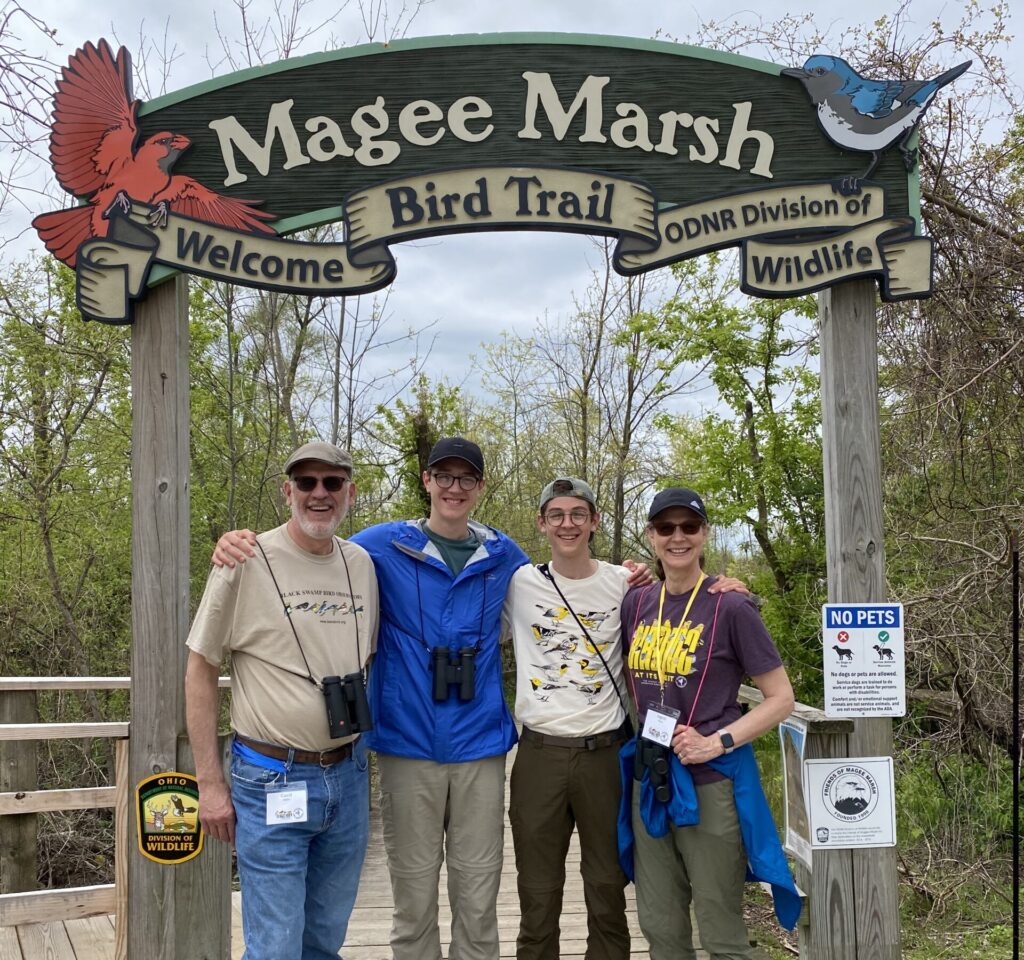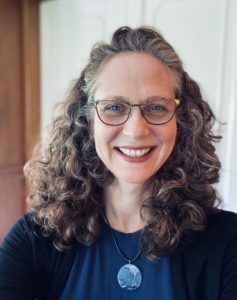Ingrid Friesen Moser, wellbeing coordinator for The Corinthian Plan, shares how spending time outdoors can help heal us and, when we come together for climate justice, can also help our planet.

Ingrid Friesen Moser (far right) and her family.
 Ingrid Friesen Moser, MA, RDN, has worked in wellness for over 25 years. In addition to her role as wellness coordinator with Mennonite Church USA’s (MC USA) The Corinthian Plan, the health care plan for MC USA pastors and church workers, she works with children and adults at Maple City Health Care Center in Goshen, Indiana. Her degrees in nutrition (Goshen College) and Christian formation (AMBS) reflect her passion for the intersection of health and wellness with spiritual disciplines.
Ingrid Friesen Moser, MA, RDN, has worked in wellness for over 25 years. In addition to her role as wellness coordinator with Mennonite Church USA’s (MC USA) The Corinthian Plan, the health care plan for MC USA pastors and church workers, she works with children and adults at Maple City Health Care Center in Goshen, Indiana. Her degrees in nutrition (Goshen College) and Christian formation (AMBS) reflect her passion for the intersection of health and wellness with spiritual disciplines.
_____________________________________________________________________________
This past spring, my family spent hundreds of hours outside. It was wonderful. The green spaces were not only beautiful, they were also relaxing and energizing.
Our experience was a part of my husband’s pastoral sabbatical. It connected our family passion for birding with the themes of ornithology, ecology and theology. We spent April, May and June looking for migrating birds and adding new birds to our life lists that index all the birds we have seen.
The sabbatical provided a professional connection for me, as a dietitian and wellness professional, with the nature prescription movement. This movement encourages people to spend time outdoors to improve health and wellness. If you would like to learn more, go to https://parkrxamerica.org/ or https://www.parkrx.org/. Numerous scientific studies show documented health improvements from spending at least 120 minutes outdoors a week. This can be as simple as enjoying green spaces more often.
Our sabbatical time outdoors was not only healing physically, but we also met people making a difference healing the planet. In the Rio Grande Valley in Texas, a community reclaimed a vacant lot and transformed it into walking trails for people and a home for wildlife. Community members planted native plants and trees, constructed vital water drips, and made blinds for observing birds and nature close-up. We learned that there are churches across the country doing the work of transforming their cemeteries and green spaces into native habitat for wildlife. For example, Akron Mennonite Church is creating a nature preserve and now allows for green burials. At an Audubon camp in coastal Maine, we joined a community of like-minded people from across the country to learn about conservation and ornithology. The camp instructors gave us the gift of words to describe the things we want to save.
Our family sabbatical was a glimpse of the hope possible when people that care come together to make a difference.
My husband and teenage sons ended the sabbatical at the MC USA Youth & Young Adult Climate Summit. The keynote speaker, Talitha Amadea Aho, shared ideas from her work on the climate crisis and her book, “In Deep Waters.” “Solidarity” was the one-word take-home message they gave for mitigating and addressing the climate crisis. By joining our efforts, joining our voices, and joining our spirits, we can make a difference in turning despair into hope.
What is good for us is good for our planet.
Get outside. Get active. Get involved with others in caring for even one part of the planet you love and appreciate.
The Corinthian Plan, MC USA’s health care plan for pastors and church workers, strives to offer creative ways to support you in maintaining healthy habits and creating new ones. The Wellness Incentive is one way The Corinthian Plan does this. Watch the video here. Open enrollment in The Corinthian Plan begins Nov. 1, 2023.
The views and opinions expressed in this blog belong to the author and are not intended to represent the views of the MC USA Executive Board or staff.
Interested in submitting a blog for Menno Snapshots? Please see our blog guidelines here.

